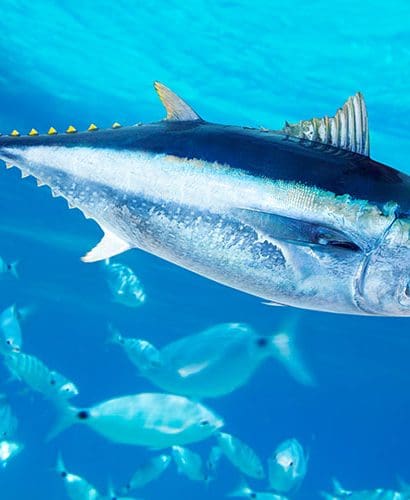
The oceans, teeming with life and wonder, are not only the Earth’s lifeblood but also our greatest ally in combating climate change and maintaining a healthy planet. However, these precious marine ecosystems face unprecedented threats from human activities. From pollution to overfishing, our actions are pushing these vital systems to the brink of collapse.
In this article, we delve into the critical importance of preserving marine ecosystems. By understanding the significance of these underwater worlds and the challenges they face, we can grasp why safeguarding them is not just an option but an urgent necessity for the well-being of our planet and all its inhabitants. Join us as we explore why marine ecosystem preservation is indeed a vital imperative for our planet’s health.
Contents
Importance of Marine Ecosystem Preservation.🐟
In the vast expanse of our oceans lie intricate worlds of life, from the tiniest plankton to the majestic whales. These marine ecosystems are not only breathtakingly beautiful but also vital for the well-being of our planet and all who call it home. Let’s dive deeper into why preserving these underwater realms is crucial for our present and future.
Diversity of Marine Life
Underneath the waves, a kaleidoscope of creatures thrives in diverse habitats, from colorful coral reefs to dark abyssal plains. Each species plays a unique role in the delicate balance of marine ecosystems. Sea turtles, dolphins, sharks, and countless other organisms contribute to the rich tapestry of life, ensuring ecosystem resilience and stability.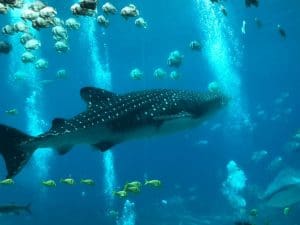
Ecosystem Services.
Beyond their intrinsic value, marine ecosystems provide a wealth of services essential for human survival. Seafood dishes with wine come to our tables thanks to the bountiful harvests from the ocean. But it’s not just about food. Coral reefs protect coastlines from erosion, mangroves act as nurseries for juvenile fish, and marine plants like seaweeds help regulate the climate by absorbing carbon dioxide.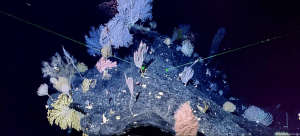
Ensuring a Sustainable Future.
As stewards of the Earth, it’s our responsibility to safeguard these invaluable ecosystems for generations to come. By implementing sustainable fishing practices, reducing pollution, and establishing marine protected areas, we can mitigate the threats facing our oceans and ensure a healthy planet for all. Let’s join hands to preserve the beauty and bounty of our marine environments, not just for ourselves but for the countless species that rely on them for survival.
Threats to Marine Ecosystems.🐟
Our oceans, once thought of as vast and indestructible, are now facing a barrage of threats that endanger their very existence. From the plastic littering our beaches to the warming temperatures driven by climate change, marine ecosystems are under siege. Let’s explore the major threats they face and why urgent action is needed to protect them.
1. Pollution.
Pollution is one of the biggest threats to our oceans. Every year, millions of tons of plastic waste, chemicals, and other pollutants find their way into marine environments, wreaking havoc on marine life. From seabirds entangled in fishing nets to sea turtles ingesting plastic debris, the impacts of pollution are devastating.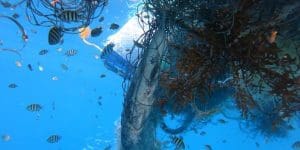
2. Climate Change.
The rising temperatures and changing weather patterns associated with climate change pose a grave threat to marine ecosystems. Coral reefs, in particular, are highly susceptible to bleaching events caused by warmer waters. Additionally, ocean acidification, a result of increased carbon dioxide levels in the atmosphere, threatens the survival of shellfish and other marine organisms.
3. Overfishing.
Overfishing is depleting our oceans of vital fish stocks, disrupting marine food webs and ecosystems. Unsustainable fishing practices, such as bottom trawling and bycatch, contribute to the decline of fish populations and harm marine habitats. Without effective management measures, many fish species face the risk of extinction.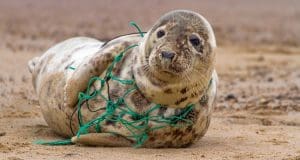
4. Habitat Destruction.
The destruction of habitat, including coral reefs, mangroves, and seagrass beds, further exacerbates the decline of marine ecosystems. Coastal development, dredging, and pollution all contribute to habitat loss, robbing marine species of essential breeding grounds and shelter.
Taking Action.
It’s clear that the threats facing marine ecosystems are grave and multifaceted. However, by raising awareness, implementing sustainable practices, and advocating for policy changes, we can work together to mitigate these challenges and ensure a brighter future for our oceans. It’s time to protect and preserve these precious underwater worlds for generations to come.
Actions for Marine Ecosystem Preservation.🐟
Preserving our marine ecosystems is a collective responsibility that requires action at both local and global levels. By implementing effective measures and strategies, we can protect these precious habitats and the life they support. Let’s explore some practical actions that individuals, communities, and governments can take to safeguard our oceans.
1. Reduce Plastic Use.
Plastic pollution poses a significant threat to marine life. By reducing our use of single-use plastics such as bags, bottles, and straws, we can prevent these items from ending up in the ocean. Opting for reusable alternatives and properly disposing of plastic waste can make a big difference in reducing marine pollution.
2. Support Sustainable Fishing Practices.
Supporting sustainable fishing practices is essential for preserving marine ecosystems. Choosing sustainably sourced seafood dishes with wine helps reduce pressure on fish stocks and promotes responsible fishing methods. Look for eco-labels like MSC (Marine Stewardship Council) when purchasing seafood to ensure it comes from well-managed fisheries.
3. Reduce Carbon Footprint.
Addressing climate change is critical for the health of marine ecosystems. By reducing our carbon footprint through actions like driving less, conserving energy, and supporting renewable energy sources, we can help mitigate the impacts of climate change on the oceans.
4. Advocate for Marine Protected Areas.
Advocating for the establishment of marine protected areas (MPAs) is crucial for preserving biodiversity and ecosystem health. MPAs provide safe havens for marine life to thrive, allowing populations to recover and ecosystems to regenerate. Supporting the creation and effective management of MPAs can help protect vulnerable marine habitats and species.
5. Participate in Coastal Cleanup Efforts.
Participating in coastal cleanup efforts is a hands-on way to make a difference for marine ecosystems. Organize or join beach cleanup events in your community to remove litter and debris from shorelines before they can reach the ocean. By working together to keep our coastlines clean, we can prevent pollution and protect marine life.
5 Lionfish Recipes Await!
“Dive into the world of gastronomy with our curated collection of 5 tantalizing recipes featuring lionfish. From savory lionfish tacos to zesty lionfish ceviche, these dishes will tantalize your taste buds while helping combat the spread of this invasive species. Let’s embark on a culinary adventure together!”
Exploring Marine Ecosystem Preservation.🐟
What are the main threats to marine ecosystems?
The main threats to marine ecosystems include pollution, climate change, overfishing, and habitat destruction. Pollution, in the form of plastic waste, chemical spills, and agricultural runoff, can smother marine life and degrade habitats. Climate change is raising water temperatures and causing ocean acidification, negatively impacting marine organisms. Overfishing depletes fish stocks and disrupts ecosystems, while habitat destruction reduces biodiversity and ecosystem resilience.
What can be done to preserve marine ecosystems?
To preserve marine ecosystems, it is crucial to implement measures both at the individual and policy levels. At the individual level, we can reduce our use of single-use plastics, support sustainable fishing practices, and decrease our carbon footprint to mitigate climate change. At the policy level, effective policies and regulations are needed to protect marine habitats, establish marine protected areas, and promote sustainable fishing practices.
How does pollution affect the marine environment?
Pollution of the marine environment has devastating impacts on marine life and ocean ecosystems. Plastic waste, such as bags, bottles, and discarded fishing nets, can be ingested by marine animals, causing suffocation, digestive blockage, and death. Toxic chemicals, such as pesticides and hydrocarbons, can contaminate marine habitats and affect organism health, leading to deformities, diseases, and death. Additionally, agricultural nutrients and wastewater runoff can cause harmful algal blooms, producing toxins that are harmful to marine life and can cause mass fish kills and other aquatic organism deaths.


